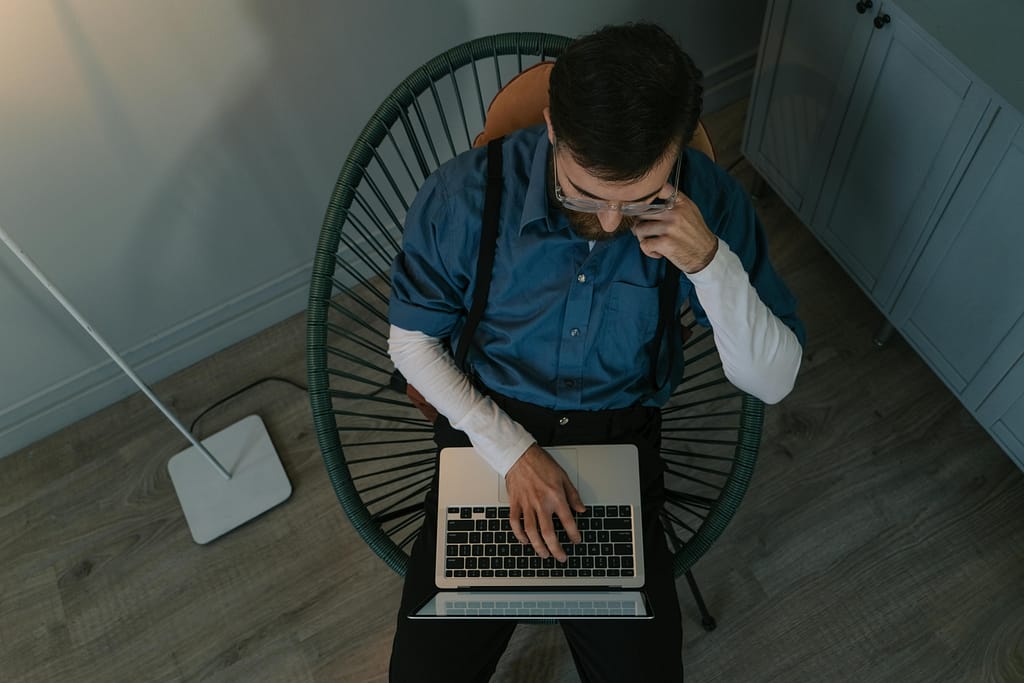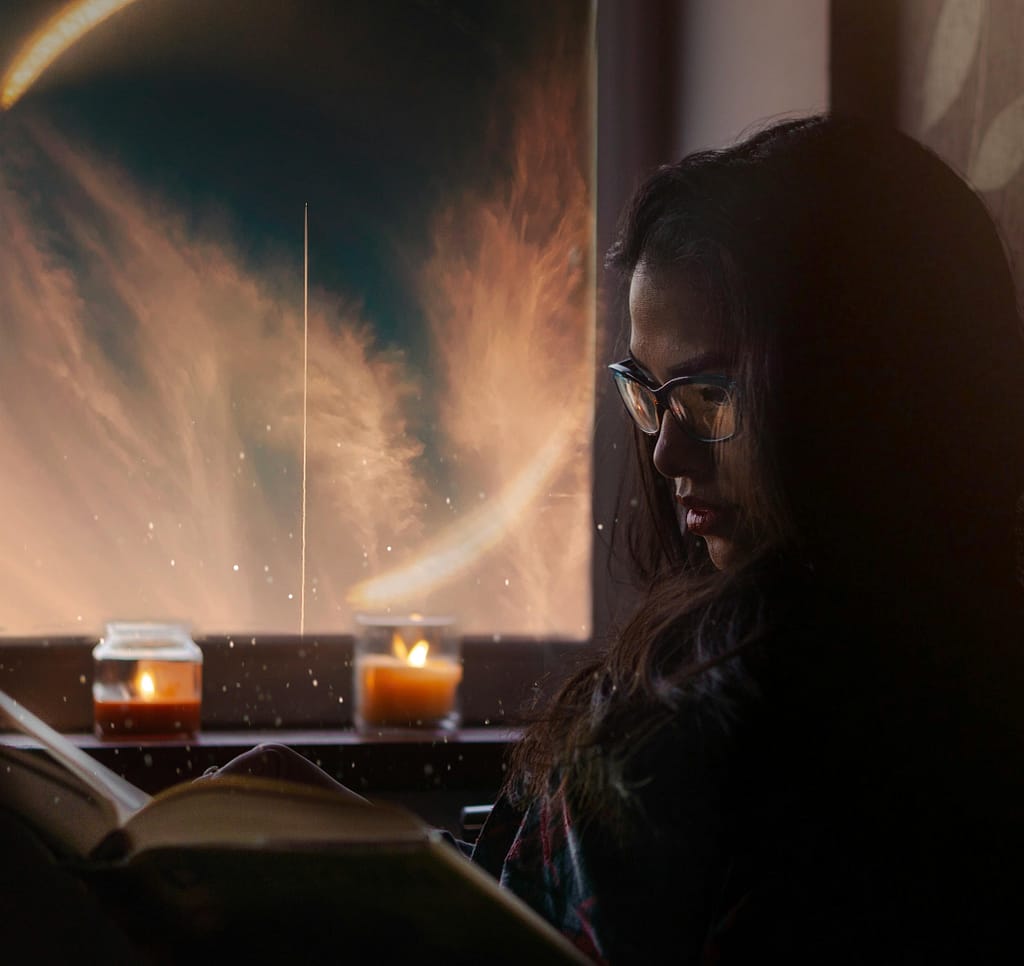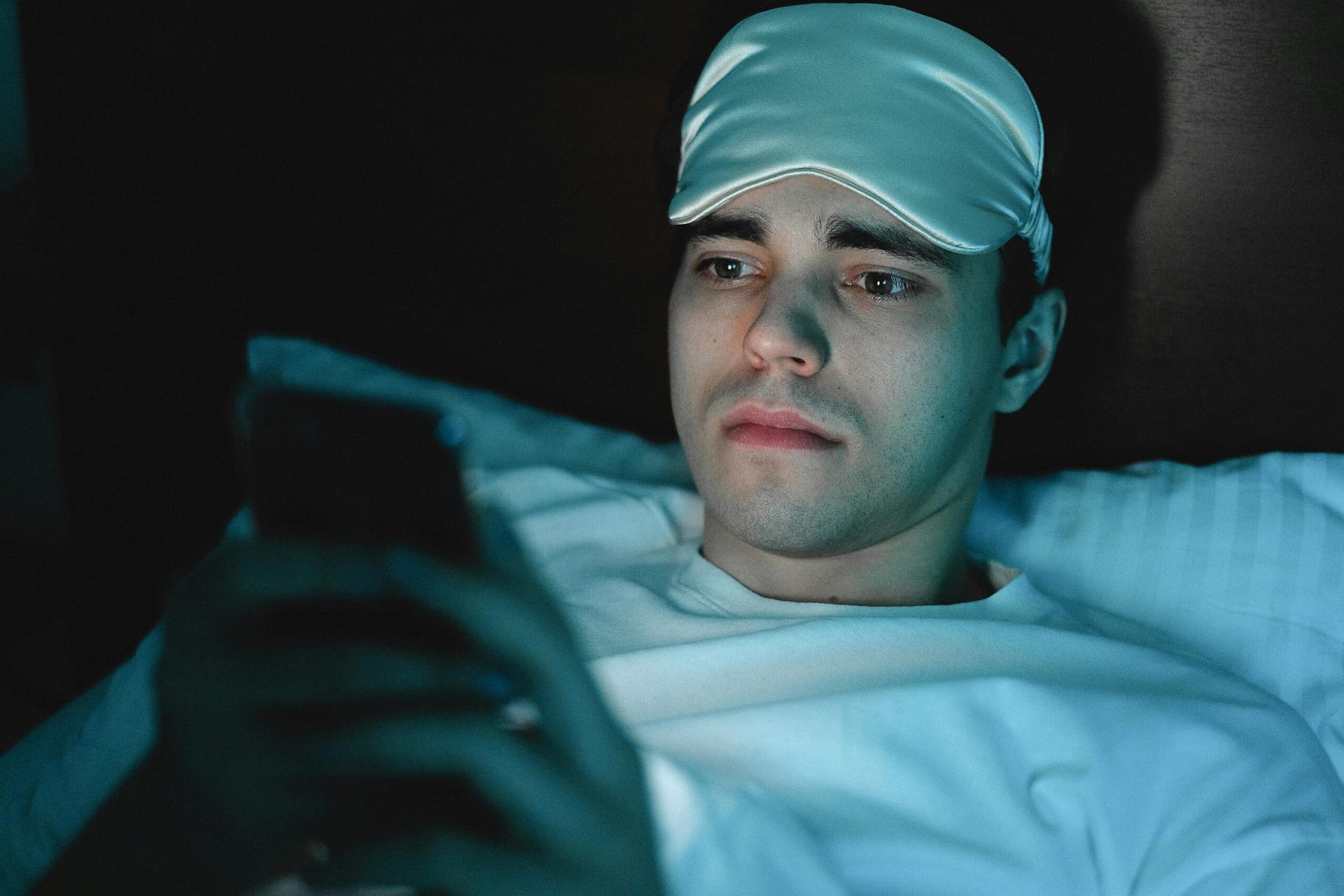Introduction
When evaluating Night Mode vs Blue Light Glasses, many users wonder which technology is truly effective for late-night screen use. In our screen-driven world, poor sleep and tired eyes have become modern epidemics. Whether it’s scrolling social media before bed, finishing a late-night project, or binge-watching your favorite show, most of us end our day with blue light exposure from digital screens.
To combat this, two popular solutions have emerged: Night Mode (or blue light filters) and Blue-Light Blocking Glasses. Both claim to protect your eyes and improve sleep — but which one actually works?
This article dives deep into the science behind blue light, compares the effectiveness of each solution, and provides actionable advice on how to reclaim your natural sleep cycle without sacrificing screen time.
1. What Is Blue Light and Why It Matters
Blue light is a high-energy visible (HEV) light in the 400–500 nm range emitted by sunlight and digital screens. Unlike natural light, artificial blue light from LED screens can interfere with your circadian rhythm — your body’s internal clock that regulates when you sleep and wake up.
Excessive nighttime exposure tricks your brain into thinking it’s still daytime. This suppresses melatonin, the sleep hormone, and leads to difficulty falling asleep, restless nights, and even long-term eye strain.
2. How Blue Light Affects Sleep and Eye Health
Research from the Sleep Foundation (2023) and Harvard Medical School confirms that blue light exposure after sunset delays melatonin release by up to 90 minutes.
Key Impacts:
- Delayed Sleep Onset: Harder to fall asleep after screen use.
- Reduced REM Sleep: Lower sleep quality and less mental recovery.
- Eye Fatigue: Prolonged screen use leads to dry eyes, blurred vision, and headaches.
Eye Fatigue: Prolonged screen use leads to dry eyes, blurred vision, and headaches. These symptoms are core indicators of a broader condition known as Digital Eye Strain. If you are experiencing more than just tired eyes, such as neck pain or persistent twitching, our comprehensive hub covers every aspect of recovery and prevention.
Did You Know?
Blue light isn’t all bad — daytime exposure boosts mood, alertness, and productivity. The problem is exposure after dark.
3. Understanding Night Mode vs Blue Light Glasses: Features and Limits
Most devices now feature a built-in Night Mode, which reduces blue light by shifting your screen color temperature toward warmer tones (yellow/orange).
Pros:
✅ Built-in and free
✅ Reduces blue light intensity
✅ Easier on the eyes in dark rooms
Cons:
❌ Does not block all blue wavelengths (usually 20–40%)
❌ Doesn’t prevent glare or screen flicker
❌ Ineffective if used alongside bright room lighting
In short, Night Mode helps, but doesn’t fully solve the problem — especially if you use your device close to bedtime.
4. What Blue-Light Glasses Actually Do
Blue-light blocking glasses are designed to filter harmful wavelengths before they reach your eyes.
They use specially coated lenses that absorb 30–100% of HEV light, depending on the tint.
Benefits:
- Reduced eye strain during long screen use
- Better comfort in artificial lighting
- Potential improvement in sleep if worn before bed
Clinical studies (2022–2024) found that wearing high-filter glasses 2–3 hours before sleep improved melatonin levels and reduced sleep latency by up to 25%.

5. Night Mode vs Blue Light Glasses: The Scientific Comparison
| Feature | Night Mode | Blue-Light Glasses |
|---|---|---|
| Blue Light Reduction | 20–40% | 50–100% (depending on lens) |
| Color Accuracy | Slightly distorted | Minimal change |
| Eye Strain Reduction | Moderate | High |
| Sleep Quality | Some improvement | Significant improvement |
| Convenience | Built-in | Requires purchase |
| Daytime Use | Good | Also good |
Final Verdict: Night Mode vs Blue Light Glasses for Sleep:
➡️ For general comfort, Night Mode works well.
➡️ For better sleep and long-term protection, blue-light glasses outperform Night Mode in every major study.
😴 Expert Picks for Sleep Improvement (High Block Lenses)
If your primary goal is better sleep, these glasses use amber or red lenses to block the maximum amount of disruptive blue light wavelengths in the evening.

1. Premium Choice: Swanwick Swannies
Blocks 98% of blue light. The ideal choice for optimizing melatonin production and sleep onset.
Check Price on Amazon
2. Budget-Friendly Option: Uvex Skyper Blue Light Glasses
A widely trusted, affordable solution for 90%+ blue light block at night.
Check Price on Amazon*Affiliate links — your purchase directly supports the Clear Vision Tips project.
6. Night Mode vs Blue Light Glasses: When and How to Use Each
For Daytime Work:
Use Night Mode to reduce strain during extended screen use.
For Evenings (2–3 hours before bed):
Switch on Night Mode and wear blue-light glasses for maximum benefit.
Bonus Tips:
- Avoid screens 30–60 minutes before sleep.
- Use warm lighting in your bedroom.
- Try ambient screen filters like Iris or F.lux on your computer.

7. Expert Tips to Improve Sleep Quality Naturally
- Stick to a sleep schedule. Go to bed and wake up at the same time daily.
- Avoid caffeine after 4 p.m. It stays in your system for 6–8 hours.
- Exercise regularly. Even 30 minutes daily improves deep sleep.
- Use blackout curtains and keep your room cool (18–20°C).
- Limit phone use in bed. Replace it with an audiobook or meditation.
8. FAQ
Q1: Is Night Mode vs Blue Light Glasses better for late-night scrolling?
A: In the debate of Night Mode vs Blue Light Glasses, glasses are superior for late-night use because they physically block blue light wavelengths that software (Night Mode) can only partially reduce.
Q2: Can I combine Night Mode vs Blue Light Glasses?
A: Absolutely. Combining Night Mode vs Blue Light Glasses is the most effective way to minimize eye strain and maximize your body’s natural melatonin production before bed.
Q3: Does Night Mode vs Blue Light Glasses impact color accuracy differently?
A: Yes. When comparing Night Mode vs Blue Light Glasses, Night Mode significantly tints your screen orange, while high-quality clear blue light glasses maintain better color accuracy for designers and editors.
Q4: Which is cheaper: Night Mode vs Blue Light Glasses?
A: Night Mode is a free software feature, while Night Mode vs Blue Light Glasses comparison shows that glasses require a small investment but offer much higher protection for long-term vision health.
9. Conclusion
In the battle between Night Mode and Blue-Light Glasses, there’s no single winner — both play a role in protecting your eyes and improving sleep.
For casual users, Night Mode provides quick comfort. But for anyone spending 3+ hours nightly on screens, investing in quality blue-light glasses makes a measurable difference in melatonin levels, sleep quality, and digital eye comfort.
Combine both with healthy nighttime habits, and your eyes — and your sleep — will thank you.
💡 Pro Tip:
Try winding down your screen time gradually each evening. Even 15 minutes of reduced exposure before bed can make a huge difference in your overall eye health and restfulness.
A Note from the Founder
"I started CVT because eye health is personal to me. After losing sight in my left eye due to a childhood injury and managing high intraocular pressure for decades, I’ve dedicated my life to finding the best ways to protect the vision we have. Every piece of advice on this site is researched with that same level of care and responsibility. Thank you for being here."



